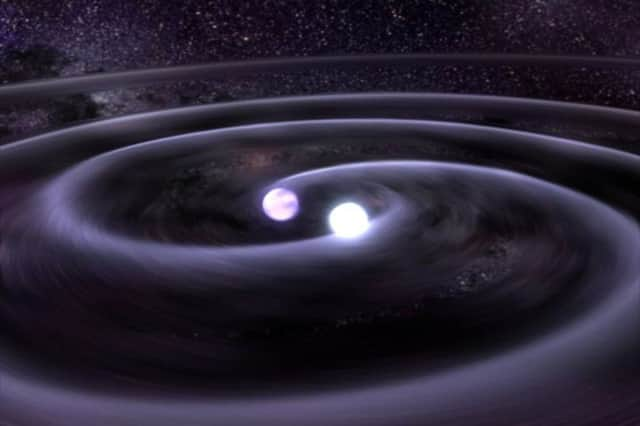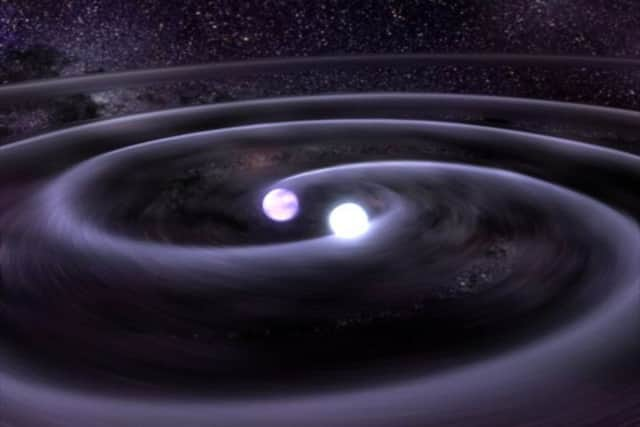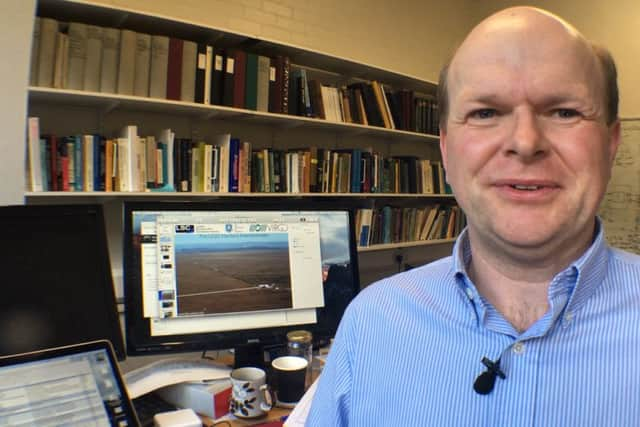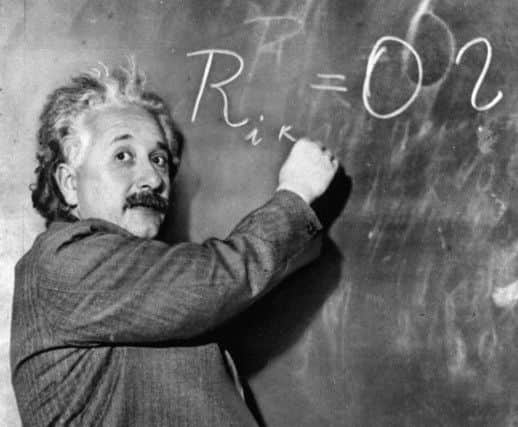Video: Sheffield scientists help finally unlock Einstein's secret of the universe


They have helped to prove the existence of space distorting gravitational waves - first predicted 100-years ago by Albert Einstein, but never before seen until now.
Gravitational waves are ripples in space-time, which carry information about space phenomena never before observed.
Advertisement
Hide AdAdvertisement
Hide AdBoffins hope, unlike using a traditional telescope, Gravitational Wave astronomy will now help us to understand some of the most violent events in the cosmos, including exploding stars, colliding black holes, perhaps even the Big Bang itself.


When microwave observations first found faint imprints of the Big Bang, Stephen Hawking called it the “greatest discovery of the century, if not all time”. Today’s announcement is another giant leap for mankind.
Dr Ed Daw, of the University of Sheffield’s PhysicsDepartment, helped with the research leading to the history making global announcement this afternoon at simultaneous press conferences in Washington DC, Louisiana, London and Paris.
Advertisement
Hide AdAdvertisement
Hide AdMaking the announcement at the National Press Club in Washington DC, laser physicist Professor David Reitze, from the University of Florida, said: “Ladies and gentlemen, we have detected gravity waves. We did it.”


He was greeted with loud applause.
Professor James Hough, from the University of Glasgow, claimed the breakthrough was more important than the discovery of the missing Higgs boson, the so-called “God particle” linked to mass, in 2012.
Speaking in Washington DC, Professor Hough said: “Until you can actually measure something, you don’t really know it’s there.
“I think this is much more significant than the discovery of the Higgs boson. This is the biggest scientific breakthrough of the century.”
Advertisement
Hide AdAdvertisement
Hide Ad

To say gravitational waves are hard to detect is a gross understatement.